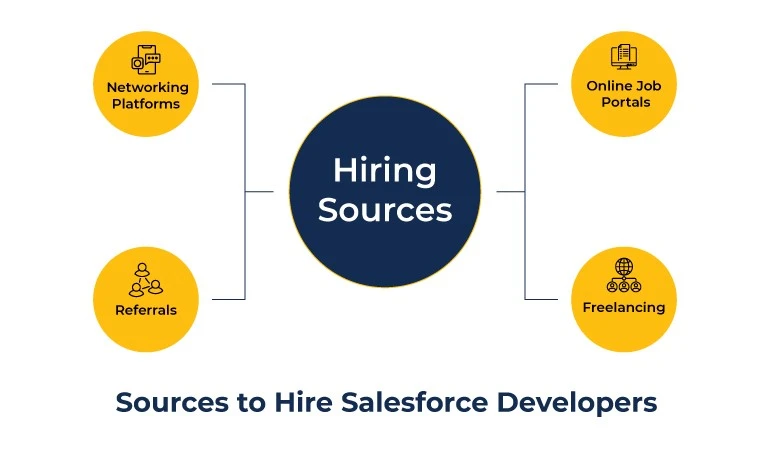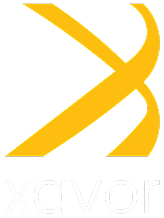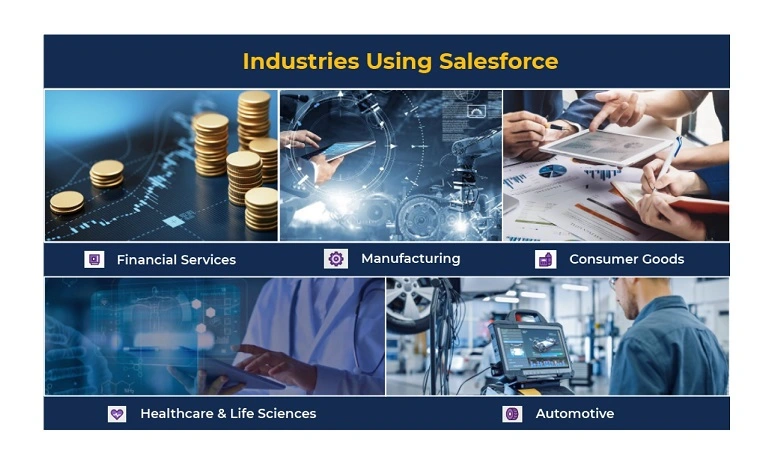
“The customer is always right” is a maxim businesses follow religiously. It reflects the mindset that customers are paramount. Keeping your customers happy is critical to business success. It is what helps you grow your company’s bottom line.
Customer satisfaction leads to customer loyalty and retention. It also helps you build a good brand reputation – a brand customers can trust to deliver. However, companies today want to do more than just deliver customer needs – they want to overdeliver and exceed customer expectations. A recipe for success!
But how do you ensure that your customers are happy and satisfied? It’s simple—put in an adequate amount of effort to meet this objective.
One of the ways you can do this is by using a top-notch CRM (customer relationship management) platform. Our top CRM pick? Salesforce services. However, it is essential that you hire the right Salesforce resource if you wish to make the most of what the platform offers.
This article offers a comprehensive guide on how to hire a Salesforce developer. But first, let’s explain what the platform offers you.
What is Salesforce?
Salesforce is a leading SaaS-based (software-as-a-service) CRM platform. While 62% of Salesforce users are from the United States, the platform has over 150,000 global users. Four years ago, Forbes said Salesforce commands nearly 20% of the market share. We expect that the platform has since attained an even greater share of the CRM market. This is a testament to its popularity.
The primary reason for its popularity is the enhanced customer experience it allows you to offer. This is why Salesforce has had the greatest impact in the B2C realm, allowing businesses to develop apps that give personalized experiences to individual customers.
If you want to increase your sales and marketing efforts through high-quality customer relationship management, hiring a Salesforce developer is your best bet. But while all this sounds very nice, it’s not possible to just buy Salesforce and get going about it; you need a technical resource, a Salesforce developer, to get the most out of your CRM.
Now, let’s discuss the role of Salesforce developers.
Role of Salesforce Developers
Salesforce developers are specialists. They help you implement the Salesforce CRM platform efficiently and effectively. For this, they must be aware of your business model, your preferences, and what you need them to deliver.
Salesforce developers can easily design, develop, and deploy reliable cloud-based applications you can sell using the CRM. They also help with business process automation, integration with third-party applications, and exciting app layouts.
Salesforce has a wide variety of use cases, which means that there are multiple roles a Salesforce developer can assume. For instance, you may want your developer to create mobile applications for customers instead of web applications. Or you may only want to tailor the Salesforce environment to suit your client’s requirements better. It depends on your business needs.
Reasons to Hire a Salesforce Developer
Here are the major reasons why your business needs to hire a Salesforce developer:
- A Salesforce developer knows your business goals and the apps you want them to develop. These apps can then be aligned with your requirements. These developers offer dedicated services, ensuring that your business is up to date with the latest tools and technologies.
- Salesforce developers are experts in integrating Salesforce with appropriate third-party applications. Such integrations eliminate the need to switch between various platforms, giving you a unified view of one platform. Moreover, hiring Salesforce developers enables you to unlock the CRM’s true potential by integrating its database with another app.
Salesforce has many features and services, and a Salesforce developer can help you ascertain the ones that best suit your needs. Here are some leading Salesforce features:
- Salesforce Sales Cloud & Service Cloud
- Salesforce Marketing Cloud
- Salesforce Commerce Cloud (B2B & B2C)
- Salesforce Community Cloud
Sources to Hire Salesforce Developers

- Professional Networking Platforms – Networking platforms serve as one of the most trusted sources for hiring skilled resources. LinkedIn is an excellent example of a professional networking platform. You can find Salesforce developers from around the world on LinkedIn. Feel free to go through different developers’ profiles and see if they meet the criteria (covered later). Reach out to them if they do and call them up for an interview (discussed later).
- Referrals—Checking out local resources is also a great way to hire a Salesforce developer. Ask around in your circle to find one. You may ask your employees, business friends, and even family members to recommend a Salesforce developer to you. Always remember the importance humans place on our close connections due to the trust factor. Research suggests that referrals still serve as a leading way of hiring employees.
- Online Job Portals – Since the advent of online classifieds, online job portals have become a popular means of finding skilled resources. Just sign up on a portal, register as an employer/recruiter, and give a detailed job description of the vacancy at your firm. Once you start receiving applications, screen them for the most qualified resources relevant to your opening. Create a list of shortlisted applicants before calling them over for an interview or conducting a virtual interview.
- Freelancing – Toptal, Fiverr, and Upwork are some of the leading freelancing platforms in the world. Here, you can find a huge range of Salesforce consulting services providers to choose from. The best thing about freelancing platforms is gaining access to a global talent pool. However, the major downside is that freelancers work on a project basis and thus might not be committed to following your organizational values. Therefore, exercise due diligence before hiring a freelancer for your Salesforce platform.
How to Screen a Salesforce Developer Before Hiring
When it comes to hiring a talented Salesforce developer, you must be specific about what you’re looking for. That’s because Salesforce is a technical platform and, as such, requires your resource to be a specialist in it. Therefore, before you make the hiring decision, ensure that the shortlisted candidate(s) go through the following screening processes:
-
Resume Screening
Resume screening is the first thing a recruiter does during the hiring process. When an applicant sends you their resume, you should thoroughly review it to gauge the applicant’s experience, skills, and education. Not only this, but you should also verify the claims made by the applicant. Applicants can improve their chances of passing the stage by using a resume AI tool by Rezi to enhance their resume for clarity and relevance. After this, you can narrow down the applicant pool further based on who satisfied the set criteria.
Your assessment will be made much easier if you look for specific credentials and certifications. As a general rule, it is always great to look for a Salesforce certification before you hire a Salesforce developer. There’s nothing better than the platform itself giving a potential resource the certificate that they are adequately qualified to perform Salesforce tasks. A Salesforce-certified developer should, therefore, be your top priority.
-
Technical Screening
As mentioned earlier, a Salesforce developer’s job is technical, requiring a specific skill set to succeed. You need to ensure that the candidate possesses the requisite technical skills to perform the job efficiently. Using skill assessment software, you can evaluate their proficiency in tools and technologies like Fuel, Lightning App Builder, and Force. com, Heroku, and more—before making a hiring decision. Ideally, you should hire a Salesforce developer who demonstrates both hands-on expertise and familiarity with these platforms.
-
Screening via Personal Interview
In most IT recruitment cases, the final screening stage assumes the form of an interview. You can interview applicants virtually (Google Meet, Microsoft Teams, etc.) or conduct an in-person interview. This is a crucial stage in the hiring process as it allows you to judge the candidate’s technical and soft skills, knowledge, and behavior. A candidate’s behavior during the interview is a close reflection of how they will behave once they start working.
How to Choose the Right Salesforce Developer
The significance of choosing the right Salesforce consulting partner & Salesforce developer for your organization cannot be overemphasized. Ideally, you should consider the following aspects when hiring a Salesforce developer:
- The applicant should be able to build apps on Salesforce, manage the platform’s security, and create permission sets. In addition to having the Salesforce developer certification, they should also be able to use the Lightning app builder and its various components.
- Certification for Salesforce developers prepares you for using all the core development features of the platform. You don’t even need any prior Salesforce experience. A certificate should enable your candidate to use Lightning Web Components, SOQL, Salesforce administration, Apex, and others.
- Usually, users with over two years of Salesforce experience have such certifications. These certifications entail having experience and knowledge of the platform, data modeling, and Apex skills.
Industries Using Salesforce
Financial Services
Salesforce for Financial Services enables financial services businesses to automate client relationship intelligence in real time. It helps them unlock Salesforce’s potential for banking, insurance, and wealth management by allowing companies to deliver enhanced customer service through engaging content.
Trust is a critical element of all business relationships, but it takes on more significance when you’re operating in the financial services sector. With Salesforce Financial Services, you can achieve the following:
- Enable a comprehensive understanding of your customers
- Automate customer experiences
- Improve customer engagement
- Real-time data automation and AI-embedded insights
- Intelligent claims processing
- Drive productivity
- Streamline the mortgage-lending process
Manufacturing
In 2019, Salesforce launched both Salesforce for Consumer Goods and Salesforce for Manufacturing CRM to address the needs of businesses operating in these industries. Manufacturing claims to develop a more integrated and comprehensive value chain for companies. It helps you do the following:
- Cross-sell and upsell
- One centralized location to access critical contracts and entitlement data
- Omnichannel support
- Enhance in-store productivity
- Visit the physical stores at just the right time
- Improve audit accuracy using artificial intelligence
- Use mobile order capture to increase in-store sales
Consumer Goods
Salesforce combines data, artificial intelligence, and CRM to help you drive business success. Salesforce for Consumer Goods helps you empower your team, win loyalty, and attract customers.
Whether you are in the apparel business, health and beauty, or FMCG (fast-moving consumer goods), the Consumer Goods CRM by Salesforce enables you to drive customer success, build stronger retail relationships, and improve the overall brand experience through data-driven insights.
Here’s what you can do with the Consumer Goods CRM:
- Compliance evaluation
- Real-time data insights
- Deliver personalized customer experiences
- Datacenter security
Healthcare & Life Sciences
The healthcare and life sciences industries also use Salesforce. Salesforce developed Health Cloud to improve the healthcare experience for providers and payers alike. It claims to put “patients at the heart of every decision” – a noble ambition!
Health Cloud encompasses a range of features and functionalities that cater to healthcare providers’ unique needs, allowing them to deliver personalized and coordinated care to patients.
Here are the key features and benefits of Health Cloud:
Patient Management
Health Cloud enables healthcare organizations to create a comprehensive view of each patient by consolidating data from various sources such as electronic health records (EHRs), medical devices, and wearables.
This unified patient profile provides a holistic view of the patient’s medical history, treatment plans, medication adherence, and care team interactions.
Care Coordination
Health Cloud facilitates seamless collaboration and communication among healthcare providers involved in a patient’s care. It enables care teams to share information, assign tasks, and track progress in real time. This improves care coordination, reduces duplication of efforts, and enhances patient outcomes.
Engaging Patient Experience
The platform empowers healthcare organizations to deliver personalized and engaging patient experiences. Through Health Cloud, providers can communicate with patients via their preferred channels, such as email, text messages, or patient portals.
It also enables patients to access their health information, schedule appointments, and receive educational content, fostering active patient engagement.
Intelligent Insights and Analytics
Health Cloud by Salesforce leverages CRM analytics and artificial intelligence (AI) to generate valuable insights from patient data.
These insights help healthcare providers identify trends, anticipate patient needs, and make informed decisions. For example, predictive analytics can identify patients at risk for readmission, allowing providers to intervene proactively.
Care Pathways and Plans
Health Cloud enables healthcare organizations to create and manage care pathways and treatment plans for specific conditions or procedures.
Providers can define standardized protocols and workflows, ensuring consistent and evidence-based care delivery. Care teams can track progress against these plans and make the necessary adjustments.
Integration Capabilities
Health Cloud integrates with various systems and applications used in the healthcare industry, such as EHRs, medical devices, telehealth platforms, and external health data sources. This seamless integration allows for efficient data exchange, eliminating silos and enabling a comprehensive view of patient information.
Compliance and Security
Given the sensitive nature of healthcare data, Health Cloud includes robust security measures to protect patient information. It adheres to industry standards and regulations such as HIPAA, ensuring data privacy and confidentiality.
Automotive
Salesforce has specifically developed Automotive CRM for the automotive industry, seeking to address the unique industry needs through various CRM functionalities. Its tagline is “Drive a lifetime of loyalty.”
Here are some of its key features you should know about:
- Lead and Sales Management: Automotive CRM enables companies to manage leads and sales processes effectively. It provides a centralized platform to track and nurture leads, automate sales workflows, and prioritize efforts for improved conversion rates.
- Customer Engagement and Personalization: This CRM allows you to deliver personalized experiences to customers throughout their automotive journey. It facilitates seamless communication through preferred channels, such as email or text messages, and enables access to relevant information, vehicle preferences, and service history for enhanced customer engagement.
- Comprehensive Customer View: The platform consolidates customer data from multiple sources, such as inquiries, test drives, and service records. This holistic view allows automotive companies to better understand customer needs, preferences, and behavior, enabling personalized recommendations and improved customer satisfaction.
- Service and Support: Automotive also helps you manage service requests, track warranty information, and streamline service appointments. Service teams can access customer data and history, ensuring efficient and personalized service delivery.
- Analytics and Insights: As with other Salesforce services and products, Automotive CRM provides robust reporting and analytics capabilities, enabling companies to gain actionable insights from their data. It allows automotive businesses to track sales performance, monitor customer satisfaction metrics, and identify trends or opportunities for better decision-making and continuous improvement.
- Integration and Collaboration: The platform integrates with various systems and tools used in the automotive industry, such as dealership management systems and marketing automation tools. Such integration improves data exchange and collaboration across different departments, facilitating streamlined operations and enhanced teamwork.
Here are some of the industries for which Salesforce Services has developed specific solutions
- Communications
- Energy & Utilities
- Media
- Education
- Retail
- Non-profit
- Public Sector
In-house vs. Outsourced Salesforce Developers
With the rise of work-from-home and flexible working arrangements, the debate on in-house vs. outsourced has raged on. When deciding which option you should opt for, it is essential to remember that your decision will, and should, be based on your business requirements. Both models have their advantages and disadvantages – but the one you should choose depends on your needs.
Benefits of In-house Salesforce Developers
- In-house resources generally have a better grasp of your company, its culture and values, and its goals.
- Having an onsite Salesforce developer can be very handy when you want to change your CRM’s functionality or enhance business processes.
- Hands-on access to internal resources also means that collaboration, including cross-functional collaboration, will be better.
- You can easily ask your developer to perform technical modifications to the CRM.
Disadvantages of In-house Salesforce Developers
- Hiring, retaining, and managing an in-house team of developers is expensive. You have to pay for other employee benefits, certifications, and training if necessary.
- You might have to change the composition of your Salesforce development team at any time due to changes in customer needs or projects, which will again be costly.
- There is a high demand for expert Salesforce developers, which compels companies to ensure adequate pay and other benefits like medical insurance and recreational allowances.
- Building a Salesforce development team is often a time-consuming process. Project deadlines can make it difficult to build a good in-house Salesforce development team.
Benefits of Remote Salesforce Developers
- The greatest charm of remote hiring is the cost reduction it offers. Hiring a Salesforce developer, say from India or Pakistan, can be significantly less costly than hiring one in the U.S. This is the primary reason for the popularity of hiring models like staff augmentation and outsourcing.
- You also don’t have to pay for office space to hire remote developers.
- Your company only has to pay for the resource once the project is completed.
- Another major benefit of hiring Salesforce developers remotely is that you gain access to a global talent pool. This allows you to hire experienced Salesforce developers at significantly lower rates, helping you drive business profitability.
Disadvantages of Remote Salesforce Developers
- A major drawback of the remote work arrangement is the loss of control over the development process. Since the resource is not in-house, you cannot oversee everything.
- Unless you sign an NDA (non-disclosure agreement) with the developer, your critical business data will be at risk of being compromised and stolen. Being a CRM, Salesforce will have a lot of confidential business information stored on its cloud.
- Remote work can lead to misunderstandings, especially if it’s not on-shore or near-shore. Your language, culture, and time zones are usually at odds with the resource’s time zone, language, and culture. However, given that we live in a global village, such misunderstandings are becoming less common.
Wrap Up
Finding the right Salesforce developer is crucial to getting the most out of your CRM platform. Even though hiring one can seem like a daunting task, following the tips given in this article can help you find the perfect fit for your organization.
Xavor is a leading tech company based in Irvine, California. We offer Salesforce customization and implementation services to clients worldwide. If you’re looking to use this incredible CRM platform for your business, contact us at [email protected] for a free consultation session to see how we can help you unlock its potential.

